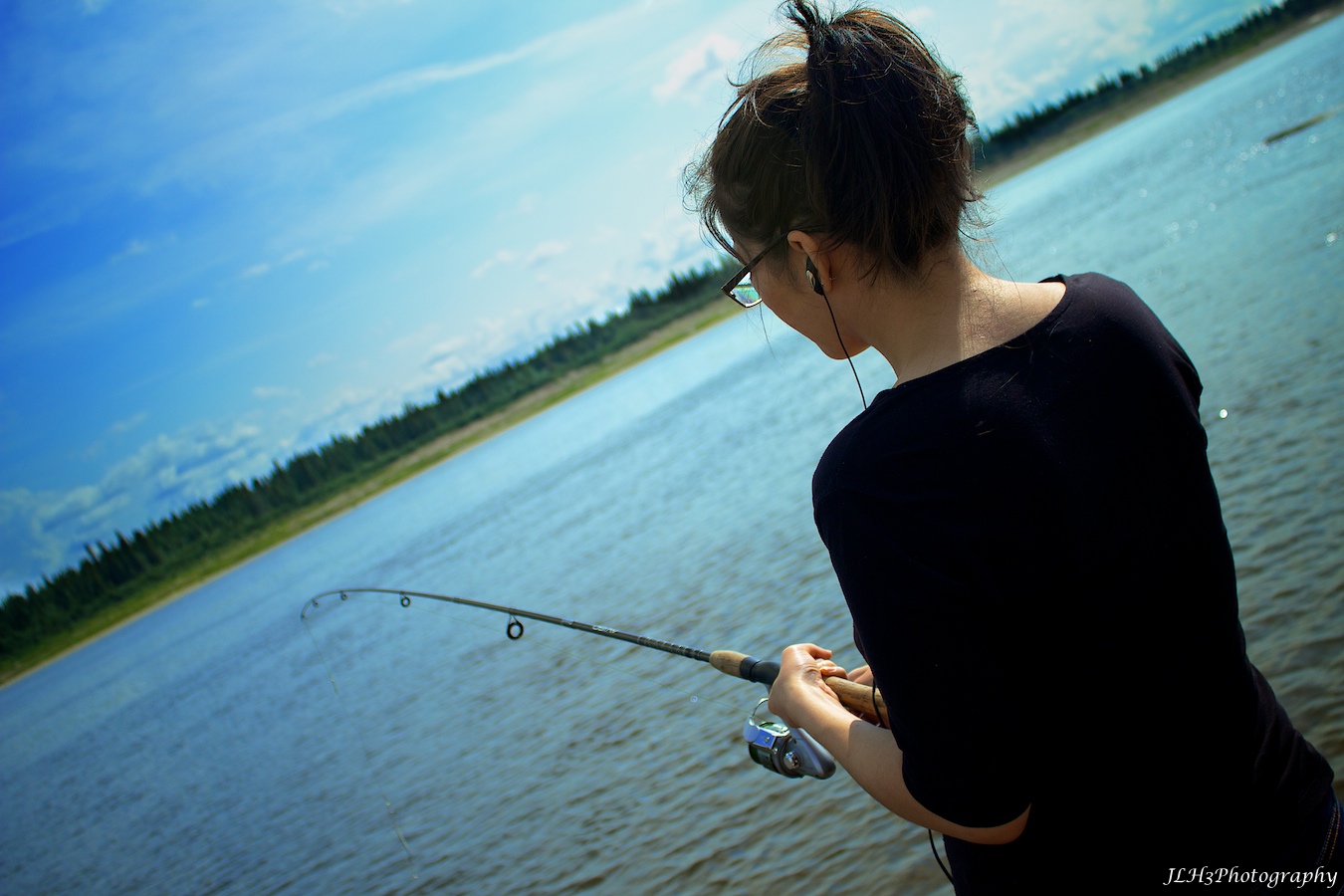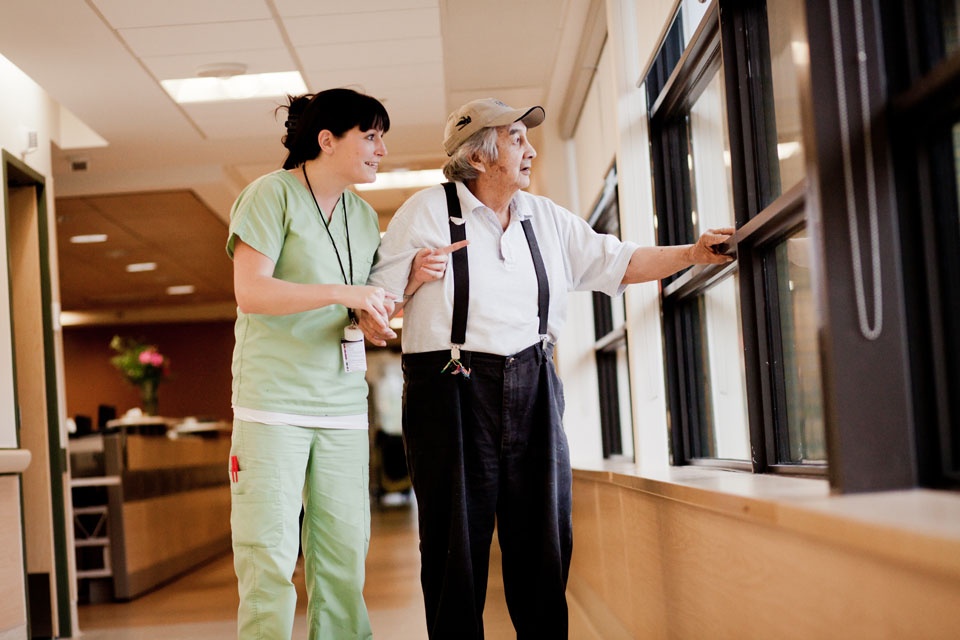Session 4: Social Accountability – Cultural Security at Work
Introduction
 Fishing on Winisk River
Fishing on Winisk River
Credit: J.H. (CC BY-ND 2.0)
Welcome to Session 4: Social accountability – Cultural security at work.
This session addresses an increased cultural competence and knowledge acquisition to enhance your northern experience. You will have a deeper understanding of Aboriginal Knowledges and culturally safe communication. Learning about this will help you feel more confident in your role as a health service provider.
Intended Learning Outcomes
- Demonstrate and apply an increased awareness of Aboriginal Knowledge with respect to health and wellness and relate the principles of Aboriginal knowledge to your career field
Elements of Performance- Define Aboriginal Knowledge and relate principles of Aboriginal knowledge to northern community wellness
- Examine traditional approaches to health and wellness in urban, rural and remote northern Ontario
- Formulate approaches for engaging Aboriginal patients, health service providers, Elders and Traditional medicine People utilizing effective culturally safe communication
Elements of Performance- Review profiles of northern Aboriginal community organizations, agencies
- Formulate a personal ethical approach to working with Aboriginal individuals, families and communities
- Understand the importance of culturally safe communication with northern Aboriginal Peoples’
- Demonstrate effective and culturally safe communications with First Nation, Inuit and Métis people
Self-assessment and goal setting
This is a short reflective activity that can be shared as part of the Sharing Circle blog/asynchronous discussion forum that will be held during this session. What is your understanding of cultural safety? How are you going to ensure that you are engaging with the patients, their families and the community in an appropriate way?
Other things to think about: What content from the previous sessions help support social accountability and cultural security in your practice?
Use this Note to Self worksheet to keep notes as you work through the material. This worksheet will be really helpful during the Sharing Circle discussion. Make sure you keep track of the questions you may have about the material as there will be opportunities for sharing during the Sharing Circle.
Reading Room
 Credit: Sioux Lookout Meno Ya Win Health Centre (©)
Credit: Sioux Lookout Meno Ya Win Health Centre (©)
1. Empathy, dignity and respect: Creating Cultural Safety for Aboriginal People in urban health care1
2. Rural health in rural hands2
3. Indigenous interprofessional competency self-assessment3
5. Cindy Blackstock: Jordan’s Principle: Canada’s broken promise to First Nation’s Children?5
Media Resources
6. Dr. Greg Cajete: Indigenous Knowledge and Western Science6 (29:04 minutes)
7. Dr. Rick Hill: What is Indigenous Knowledge?7 (3:06 minutes)
8. Dr. Rick Hill: How can we negotiate ancient traditions in relation to everyday reality?8 (4:47 minutes)
Learning Activities
Facilitated Sharing Circle: Note to Self! Take a moment to reflect on what you have learned in this module. What are your thoughts and feelings about what you learned and how it applies to your role as a health advocate and your future practice whether located in a tertiary care metropolitan city or small community? Use the Note to Self worksheet as a guide and come prepared to share your insights during the facilitated discussion forum.
You have now completed the Aboriginal Health module - congratulations!
Return to home

Credit: J.H. (CC BY-ND 2.0)
References
1 Health Council of Canada. (2012). Empathy, dignity and respect: Creating cultural safety for Aboriginal people in urban health care. Accessed from http://www.healthcouncilcanada.ca/index.php
2 Ministerial Advisory Council on Rural Health. (2002). Rural health in rural hands: Strategic directions for rural, remote, northern and Aboriginal communities. Accessed from https://www.srpc.ca/
3 Helmer, J. (2015). Indigenous interprofessional competency self-assessment. Adapted from the CIHC National Competency Framwork 2010.
4 Walker, R., Cormarty, H., Linewich, B., Semple, D., St. Pierre-Hansen, N. & Kelly, L. (2010). Achieving cultural integration in health services: Design of comprehensive hospital model for traditional health, medicines, foods and supports. Journal of Aboriginal Health, 6(1): 58-69.
5 Blackstock, C. (2012). Jordan’s Principle: Canada’s broken promise to First Nations children? Paediatrics & Child Health, 17(7): 368-370.
6 Cajete, G. (2015). Indigenous knowledge and western science: contrasts and similarities. Accessed from https://www.youtube.com/watch?v=nFeNIOgIbzw
7 Hill, R. (2013). What is Indigenous knowledge? Accessed from https://www.youtube.com/watch?v=AZ6gvd-HaP8
8 Hill, R. (2013). How can we negotiate ancient traditions in relation to everyday reality? Accessed from https://www.youtube.com/watch?v=SSF9ARxMGbs